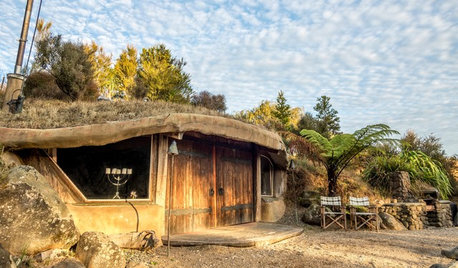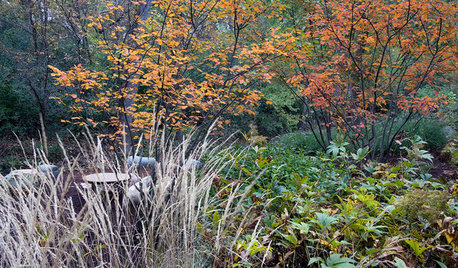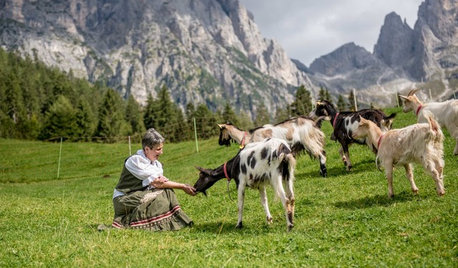Can Organic Feed the World?
organicdan
14 years ago
Related Stories

ORGANIZINGDecluttering Ideas From Around the World
Home organizers share their tips on how to think and live more clearly
Full Story
HOUSEKEEPINGCan-Do Cleaning Strategies for Busy People
While you dream of having a maid (to go with the cook and chauffer), this simplified cleaning routine can keep your real-world home tidy
Full Story
FUN HOUZZWe Can Dream: Hobbit Houses to Rule Them All
Escape the real world and explore your Middle-earth fantasies
Full Story
CLOSETSThe Cure for Houzz Envy: Closet Touches Anyone Can Do
These easy and inexpensive moves for more space and better organization are right in fashion
Full Story
GARDENING GUIDES15 Native Flowers That Feed Native Bees
These perennials offer superfood to hundreds of bees and are gorgeous in their own right
Full Story
GARDENING GUIDES8 Native Shrubs for Year-Round Bird Feeding
It’s not just about berries. These plants provide insects for birds and seasonal interest for gardeners
Full Story
MOST POPULARArchitectural Icon: The World’s First Bauhaus House
The Haus am Horn in Weimar is the first architectural example from the famed school, and the only one in the German city where Bauhaus began
Full Story
FARMHOUSESWorld of Design: See How 9 Families Live and Farm on Their Land
Join us as we visit the homes and farms of passionate food producers and hear about rural life around the globe
Full Story
THE ART OF ARCHITECTUREWorld of Design: Trees Bring Nature to a High-Rise in Milan
Discover ‘the most beautiful and innovative skyscraper in the world’ — the foliage-filled Bosco Verticale — and tour one of its apartments
Full Story
PETSWe Want to See the Most Creative Pet Spaces in the World
Houzz is seeking pet-friendly designs from around the globe. Get out your camera and post your photos now!
Full StorySponsored
Central Ohio's Trusted Home Remodeler Specializing in Kitchens & Baths
More Discussions






organicdanOriginal Author
Lloyd
Related Professionals
Windham Landscape Architects & Landscape Designers · Mount Wilson Landscape Architects & Landscape Designers · Arlington Landscape Contractors · Bellefontaine Neighbors Landscape Contractors · Canyon Lake Landscape Contractors · Doctor Phillips Landscape Contractors · Quincy Landscape Contractors · Rockland Landscape Contractors · Vancouver Landscape Contractors · Ankeny Decks, Patios & Outdoor Enclosures · Fort Myers Decks, Patios & Outdoor Enclosures · Issaquah Decks, Patios & Outdoor Enclosures · Meridian Decks, Patios & Outdoor Enclosures · Mitchellville Decks, Patios & Outdoor Enclosures · Westfield Decks, Patios & Outdoor EnclosuresLloyd
gargwarb
rdak
paulns
gargwarb
pnbrown
valerie_ru
paulns
Lloyd
valerie_ru
gargwarb
valerie_ru
Michael
Lloyd
valerie_ru
Lloyd
valerie_ru
Michael
borderbarb
organicdanOriginal Author
Lloyd
Lloyd
Lloyd
organicdanOriginal Author
Lloyd
borderbarb
Michael
pnbrown
Dan _Staley (5b Sunset 2B AHS 7)
Michael
Dan _Staley (5b Sunset 2B AHS 7)
Lloyd
jonas302
Michael
Dan _Staley (5b Sunset 2B AHS 7)
Dan _Staley (5b Sunset 2B AHS 7)
Lloyd
pnbrown
gjcore
Lloyd
Dan _Staley (5b Sunset 2B AHS 7)
Lloyd
Dan _Staley (5b Sunset 2B AHS 7)
Lloyd
Dan _Staley (5b Sunset 2B AHS 7)
Lloyd
Michael
gjcore